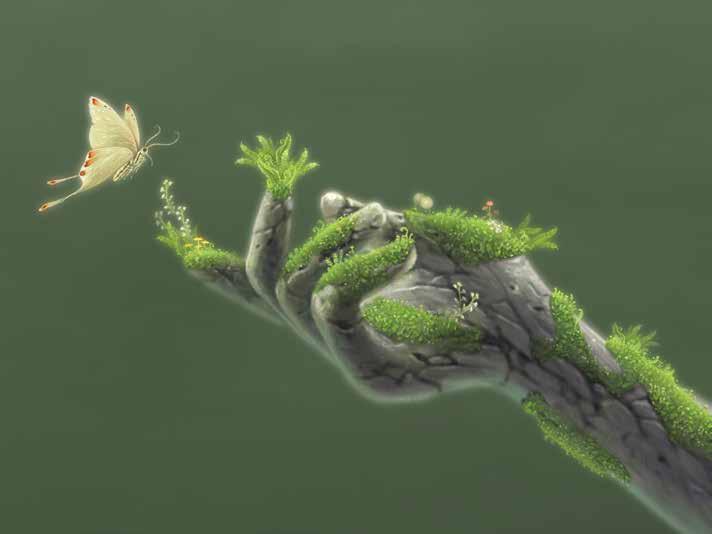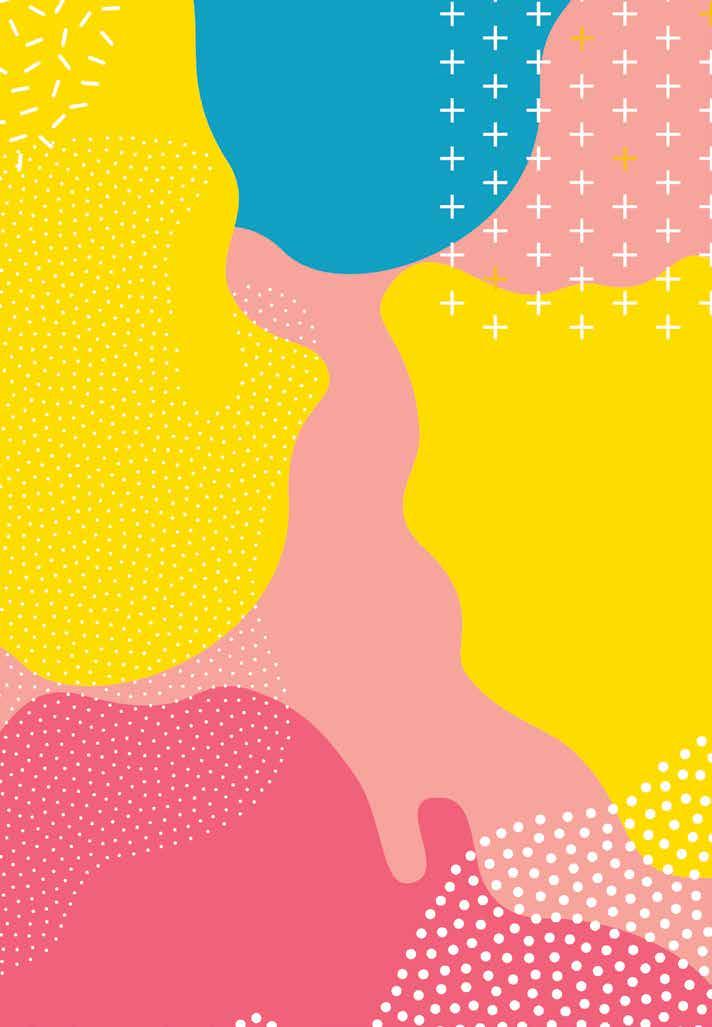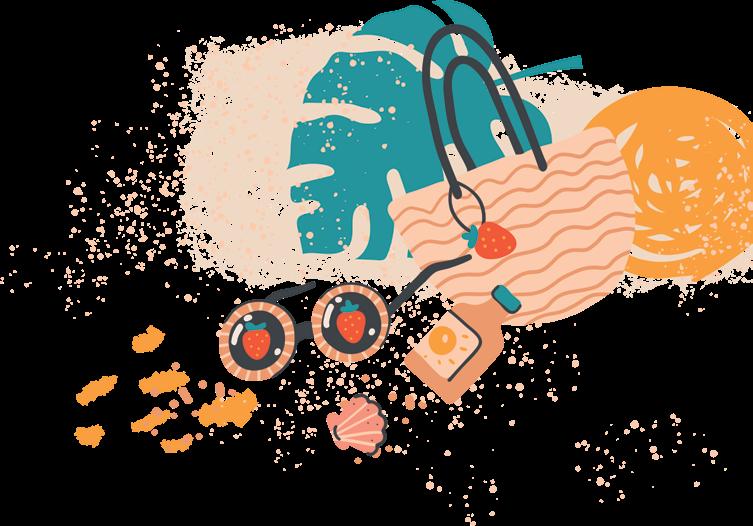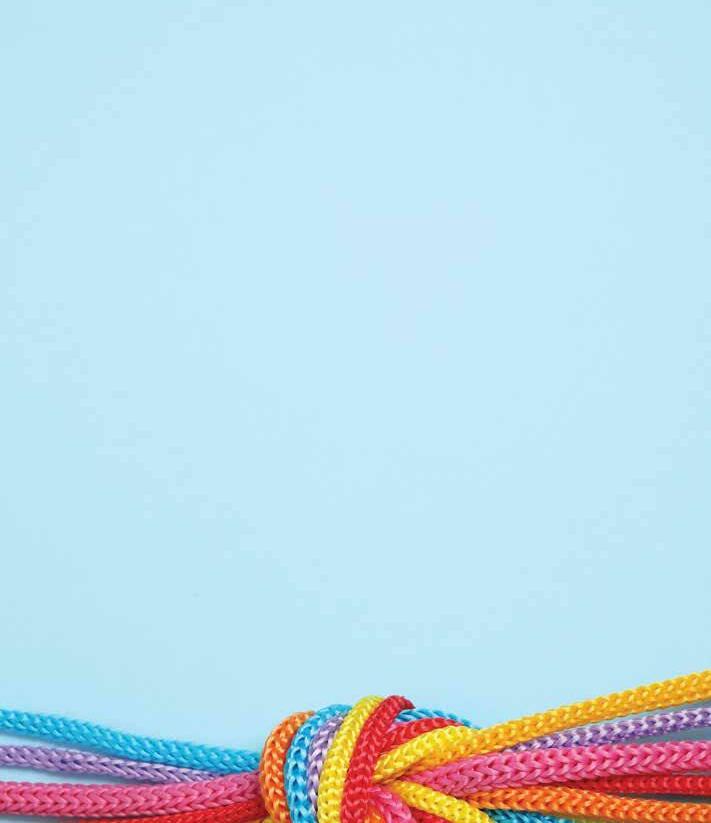
13 minute read
Interview with Brimbank Mayor Cr Jasmine Nguyen
Jasmine Nguyen is Mayor of Brimbank City Council and was elected in November 2021. The Bold Source team invited Jasmine for an interview to learn more about what it’s like being Brimbank’s youngest and first Vietnamese-Australian Mayor. This interview was held in April 2022.
What do you love most about being at Brimbank and the community?
Advertisement
I love the Brimbank community the most. I think what’s special about our community is that you can be who you are. We’re all pretty down to earth, but in other places that are a bit more fancy, you have to put on a mask. Here, it doesn’t really matter whether you are middle-class, rich, or have a low socioeconomic background. We are pretty progressive as a community as a whole because we have people from different cultural and religious backgrounds and other groups, such as our queer communities. We’re not the green union type of progressive, but, in terms of nature, we are progressive in the sense that we love sustainability. We love innovation. We love celebrating other people’s cultures. The main thing to say is that people in Brimbank feel comfortable with just being who they are.
What inspired you or motivated you to become mayor?
What inspired me to run for Council was the fact that we had so many underlying issues and challenges in Brimbank that still need to be resolved, particularly for young people and multicultural communities. When I ran for Council in 2020, I had a lot of friends who were feeling very uncertain about their future and it really affected their mental health. Also, there was harmful rhetoric in the media and general society about our Brimbank community, such as “Of course you guys have postcode lockdowns because you guys are ethnic, you don’t follow the rules - blah blah blah.” There was no cultural sensitivity, especially in terms of COVID communications and working with community groups to address the whole pandemic. When I looked at the Council at the time, I felt it was lacking diversity. I’m glad that the Council believes in young people as seen by the fact that we have a young Mayor who is also a woman of colour. It’s quite challenging for women of colour to be in leadership positions, especially in fields such as politics where it can be very exclusive.
What community issues do you want to address in your role as Mayor?
The top thing is empowering our young people because there is a lot of youth disengagement in terms of high youth unemployment rate. At the peak of the pandemic, we had the highest youth unemployment rate of any Victorian local government area - it was about 19%. The state average at the time was about 15%, which was crazy! I want young people in Brimbank to feel like they matter. Another thing I wanted to make a change in is our community’s mental health. Mental health is traditionally seen as a thing where you only go to seek help when it’s in a really bad state or it’s on an extreme spectrum. There’s all this stigma, especially in a community such as ours, which has so many backgrounds. Some communities are more advanced in terms of mental health acceptance, whereas some are not - it can still be challenging to have conversations about mental health.
The third thing is sustainability. Sustainability is not just about ‘greening’ Brimbank and taking climate action. It’s also about ensuring a thriving and beautiful community for the future generations. The decisions that we make today as young people will determine the effects on the climate in the future.
What is it like being a young Mayor? Have you faced any challenges due to your age?
I feel like a lot of people have misconceptions about who a Mayor should be. They think it should be someone who’s old with decades of work experience and polished accents. Someone who dominates and is white and male. When I walk into rooms, many - especially if they don’t do any research - don’t expect me to be the Mayor. However, most have been very positive in how they receive me and I think it’s refreshing.
I think that this represents a change for the community and the great thing about being young is that people love the enthusiasm, energy and optimism for a better future. We don’t have to do things the same way just because that’s how things have always been done. However, sometimes it’s hard for people to have that open-mindedness. When I say my point of view, someone will say “She’s being disrespectful. What would she know? She’s so naive.” I feel that for me to be taken seriously, I have to be across the research much more.
It’s like a model minority, where you have to be at the top to be taken as seriously as another person. When being bisexual, Australian and a woman of color, they expect that you should fit in that stereotype of being a submissive, young, Asian female. Some people are taken aback when I stand up for the community and say my thoughts. I think you just have to say what you have to say, because if you don’t, then who else is going to say it? Just being in this role makes a big difference because representation helps others see what is possible. Hopefully that will encourage more young people to step up.
How would you define self-care?
Self-care is something that I’m still working on. Growing up, I always tried to be the good girl. In Asian cultures, this means showing respect to your elders. Yet, for some reason, it’s often putting other people’s needs above yours and I feel this also comes across through my role as a Mayor. I always try to put myself out there for the community. But it can come to a point where it’s going to hurt me and cause me to burn out if I don’t make time for myself. What I’m learning about self-care is: what does it mean to listen to yourself? I think self-care really means to be there for yourself and to let your own thoughts come out. But it raises the question: how do I take care of myself? Overall, I think for self-care, you have to know who you are as a person. When we’re trying to get through the day, we don’t even give ourselves time to discover ourselves. Many people say “You need to love yourself”, but how are you supposed to love yourself if you don’t know who you are? Self-discovery starts with little things, like “what colour do I like?” or “what makes me happy?” What does happiness mean for me? What is success? Unfortunately people tend to confuse happiness with success. Once again, this is a cultural norm of society. I feel this is a reason why many people are feeling unmotivated and unsatisfied with their lives. But if we take the time to self-care and get to know ourselves, and we think - “I know this and this about me. And I know that I like this,” then maybe we get to a point of self-acceptance and self-love. When you have many meetings, deadlines, and tasks, it can feel overwhelming. But again, if you know yourself, what you care about and what your values are, it’s easier to put yourself first by saying, “I’m going to prioritise what I want to prioritise because this is what I care about the most.” It’s about where we put in the time to think about what life we want to live.
This may mean acknowledging that when you say yes to one thing, it means you’re saying no to another. And, if you’re the person who finds it hard to say no, then it goes back to that concept that sometimes saying no to others is giving a yes to yourself. It’s giving priority to yourself.
How do you take care of yourself and ensure that you don’t feel overwhelmed when you have a lot of meetings, deadlines and tasks that you need to complete?
I guess you have to understand what you care about the most, your values. And that goes back to self-care. If you don’t know yourself, you need to take the time to do that, because self-awareness is essential for you to figure out what is the most important thing for you to do. Cause if you don’t do that and you just go through your day, you’re gonna feel like what I felt, “What have I achieved? I feel worthless.” But if you know what you care about and you know that you’re prioritising doing things that contribute to what you care about, your purpose, then you’ll feel so much better about yourself. That will empower you to say no to things and say yes to yourself. I know that I’m in Council, I want to help young people, multicultural communities and advance mental health and sustainability. And I’m talking to The Bold Source today, some things are non-negotiable. I think it’s coming to realise you can’t please everyone. So why not focus on pleasing yourself first?
What are the top 3 self-care tips that you would give to young people?
I would say, journaling, because it is a great way to incorporate mindfulness in your life. When you are journaling - it’s just you and your thoughts. We usually get really distracted when we’re consuming, consuming, consuming things. When I do journal, I learn things about myself. The knowledge that you’re seeking for is actually inside you and it helps you focus. You feel so much better about yourself when you’re journaling and listening to yourself. Another step for self-care is - oh my, I’m not the best self-care person! ‘Cause I can tell you, I’m still working on it. But I think it’s a matter of self maintenance. Like just having a simple skin skincare routine, small little things like that. It just makes me feel better about myself. I think I feel good when I feel like I look good. I know that’s superficial, but that’s just for me, I feel good when I look good. The third self-care tip is just giving yourself time. The two other tips contribute to this third tip because you can’t do these other things in self-care if you’re not giving yourself the time just for you.
Where do you go when you need advice?
There are different types of people who process and communicate things in different ways. Some people don’t like to talk about how they’re feeling, whereas I’m the type of person who goes to my friends and I talk and process things out loud. It’s really hard for me to bottle things up. I go to someone who’s a good listener, who’s not going to judge me because sometimes, it’s not about the answers that I’m seeking, I just need someone to listen. But, at the end of the day, there are times where you can’t go to other people to get advice, like it’s 1 AM where you might feel like only you might be in this position. It’s important to know that when things go hard, no matter what, you always have yourself. I think we need to be kinder to ourselves and also value ourselves as the person who can also give advice. We have the ability to figure things out. Sometimes, we have self-esteem issues; we feel as though we’re not good enough: We can’t do it. But if we shift this and instead ask ourselves, “If I can’t do it, who else will?” then at least we know we can count on ourselves, which I feel is more empowering. We don’t always need to go to someone else, sometimes the advice lies within yourself. The other day, I was listening to a podcast that spoke about how the simple act of giving yourself a high five in the mirror every day makes a huge difference! It may sound weird, but the concept is that you’re telling yourself no matter what, you still have yourself and you’ve got this! Even if no one in the world is there to support you, you have yourself always. We need to remember that we can control our perspective, even if we can’t control the things external to us.
We usually describe healing as finding peace and acceptance within yourself in order to grow. What advice would you give to young people?
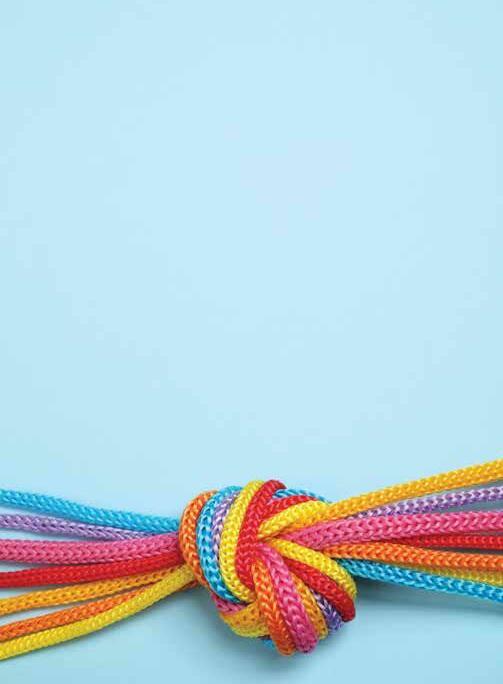
I think it’s about the simple steps. Before we can accept ourselves, what do you even know about what you’re accepting about yourself? You need to go through the act of just self-discovery: who are you as a human being? What are your likes and dislikes? You don’t have to clearly think “I hate that, or I love that about myself,” but just self-discover first, and then the next part of that is accepting the things that you like or dislike about yourself. Have a list of what you love about yourself now. Sometimes it’s really hard to go over our past and think about what we love about ourselves, so at least think: what do I like about myself? Then, think about the things that you don’t like about yourself - is this something that you want to change or work on? Be critical about yourself, but also show some compassion to yourself. One thing that I am struggling with is that I find it hard to say no to others. There’s a part of me that wants to get along with people and help others. But then I also don’t like that part about myself because I’m not putting myself first. I’m giving time to others, but not enough time to myself. So I have these two parts: the part of me that says yes to others is trying to protect me from the fear of condemnation for not saying yes to someone. So I think it’s good to show self-compassion, and to understand that some things that you do are to protect yourself. However, also acknowledge that of these two parts, you need to decide which is the better way to handle things. I think that when we try to change our behaviour, we sometimes don’t address the core issue. Some people say “This year, I’m going to get enough sleep by sleeping at 9:00 PM”. They try to change their habits, but then go back to sleep at 12:00 AM. If you don’t address the core issue of why you’re doing this maybe it’s because of anxiety or that you overthink at night - then you’re going to revert back to the original habit. That’s why you start with self-acceptance and try to work on self-compassion.
What future do you envision for young people in the Brimbank community?
I want young people in our community to feel like they matter. I want young people to be proud of themselves because for so long, there is a bit of a narrative out there that young people are disrespectful, selfish or lazy. We all have experiences we can bring, no matter how long we’ve been on this earth. Yes, you can have bad experiences, and I think young people can sometimes disvalue themselves for the value that they actually bring. I would love to see more young people in leadership positions and taking the lead. I would love to see our community empowering young people to do what they want to do, be what they want to be. Why do we keep telling young people that they need to be a certain way? Why can’t we just let young people figure it out for themselves?
Our society conditions young people to be a particular way, because we try to condition people to be productive. It’s no wonder that a lot of people feel lost and that they feel like we’re not giving them the space, time, resources and energy to self-discover. Self-discovery leads to self-care and self-acceptance. Our parents tell us, be a doctor, a lawyer or blah blah blah because it gives security and everything. But what I’m learning is that if you let a young person follow their dreams and interests, it will naturally lead that young person to thrive in a space where they’re meant to be.


